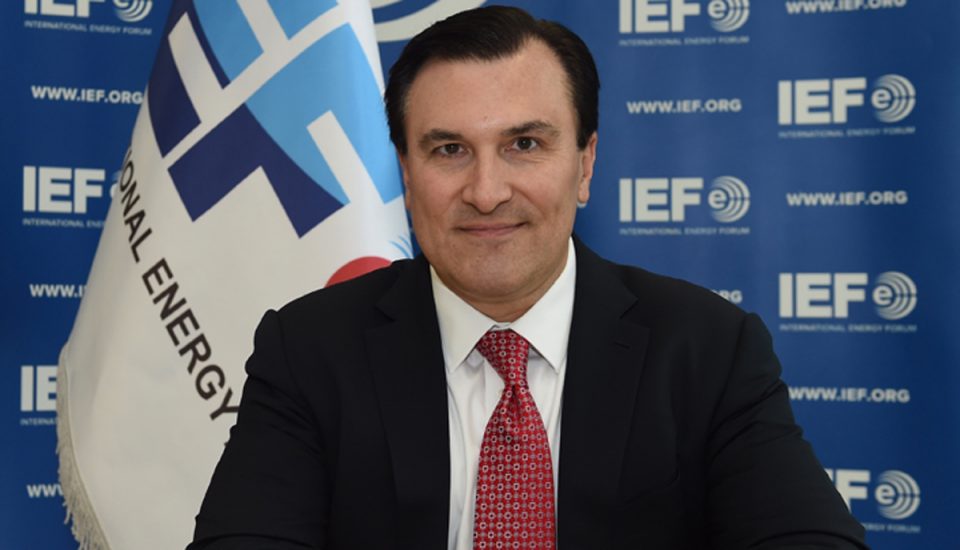The Secretary-General of the International Energy Forum (IEF), Joseph McMonigle, has congratulated the United States and Romania on the signing of a new commercial partnership to advance the deployment of Europe’s first small modular reactor (SMR) in Romania by the end of the decade.
U.S. Secretary of Energy Jennifer M. Granholm and Romanian Minister of Energy Virgil Popescu highlighted the new commercial partnership between NuScale Power and Nuclearelectrica that was signed on the sidelines of the COP26 climate change conference in Glasgow.
“The IEF congratulates the United States and Romania on this important agreement, which will support nuclear energy deployment in Romania and across Eastern Europe,” said Mr McMonigle.
“The IEF regards nuclear power as a vital low-carbon energy source, which is expected to play an indispensable role in the energy mix and contribute to the global effort to solve the climate crisis.”
The United States and Romania are both members of the IEF, an international organization dedicated to promoting dialogue to support energy security, market stability and transparency.
The two companies agreed to work toward the deployment of a NuScale SMR plant at a retiring coal facility as early as 2027/2028. The SMR will enable Romania to phase out coal-fired energy production by 2032. SMRs and other advanced nuclear technologies will allow countries to generate far more carbon-free power at lower cost and is expected to revitalize the nuclear energy industry worldwide.
Repurposing coal plants with SMRs will help Romanian communities and plant workers participate in the transition to decarbonized energy, while also continuing to provide local economic benefits.
The agreement could also position Romania as a hub for SMR production in the region known as the Three Seas Initiative, 12 Eastern European states between the Adriatic, Baltic and Black Sea.
Romania plans to reduce carbon emissions by 55 percent until 2030 and its import dependency on fossil fuels from 20.8 percent to 17.8 percent in 2030. Nuclear energy, which currently contributes 33 percent of the country’s emissions-free energy production, will have an essential role in achieving these decarbonization targets to ensure the transition to a carbon-free economy.




